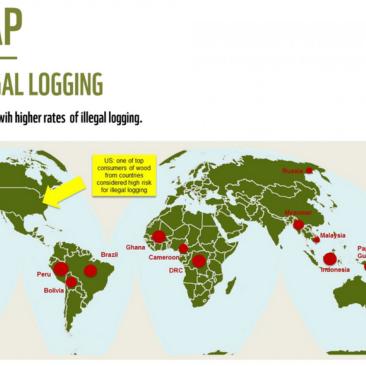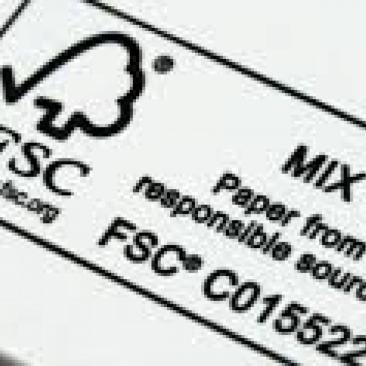Julia Mylne, Policy and Advocacy Manager:
Thank you to EFFA organisers for inviting me to speak on a panel following a screening of the inspiring documentary The Borneo Case. It was an excellent opportunity to talk about how the FSC certification system works to combat the impacts of illegal logging on local communities.

The Borneo Case, directed by filmmakers Erik Pauser and Dylan Williams, followed the incredible story of an unlikely group of activists whose aim was to investigate how profits from the illegal logging of the Malaysian Borneo Rainforest have been money laundered into property portfolios all around the world. The documentary revealed the harmful impacts that illegal logging had on local communities and indigenous peoples in the Malaysian State on Borneo, Sarawak.

While the film focusses on the story of the Sarawak region, it is one of many examples of illegal logging throughout the world today. Illegal logging is a global problem. The theft, laundering and trade of illegal timber occurs throughout the world – in both developed and developing countries and in all types of forest ecosystems Illegal logging has significant environmental, economic and social costs.
The principle motivation behind these illegal activities is profit. Illegal operators, by their very nature avoid many costs associated with sustainable forestry management, such as payment of royalties to governments and traditional owners, compliance with harvest controls, labour costs and other legitimate costs. This has a negative impact on domestic market prices, which can affect business decisions, industry investment, profitability and jobs in the local economy.
By buying and importing timber and timber products with ‘no questions asked’, consumer countries are unknowingly giving financial incentives to those committing forest crimes . Buying from illegal sources undermine efforts to enforce the law in some of the world’s poorest timber producing countries.
Illegal logging also imposes a range of intangible costs on forest-dependent communities. These include reducing the standard of living; eroding sustainable livelihoods; destroying customary, spiritual and heritage values. It also encourages a wide range of human rights abuses; the use and exploitation of foreign workers; reducing the quality of the forest environment; and contaminating food and water resources.
These are just some of the devastating realities of the impacts of illegal logging. So what can be done to stop these practices? Strengthening laws around illegal logging will make countries a less attractive destination for cheap illegal timber and timber products that undercut legitimate businesses. Implementing regulatory frameworks and legislative measures is the first step in combating the trade of illegally logged timber and wood products from entering the market.
For this reason, several governments have, in the last decade, adopted ‘legislation for timber legality’: laws that ban the trading of timber that is harvested illegally anywhere on the planet. To prevent purchase and sales of timber products connected to illegal harvesting, these governments require companies to apply ‘due diligence’.
At the same time, systems operating outside of government initiatives are working to improve the traceability and sustainability of the world’s timber resources, while simultaneously providing consumers with the power to take part in the fight against illegal logging.
The FSC System functions as an independent third party forest certification scheme. FSC regard legality as essential to responsible forest management worldwide. In fact, it is the first principle of FSC responsible forest management. All countries with forests have rules to manage ownership and harvest rights, but the level of enforcement of these rules varies across the globe. The FSC framework provides purchasers with assurance about the legality of their suppliers’ operations, with the ability to function as a global system of checks and balances.
We have been working closely with the Australian Government to inform them of the importance of certification schemes in combating illegal logging.

The FSC trademark enables consumers to choose products that not only guarantee timber legality, but that support forest conservation, offer social benefits, and enable the market to provide an incentive for better forest management. Increasing demand in the market place for certified products is crucial in helping drive the market towards a more sustainable and ethical supply chain.
